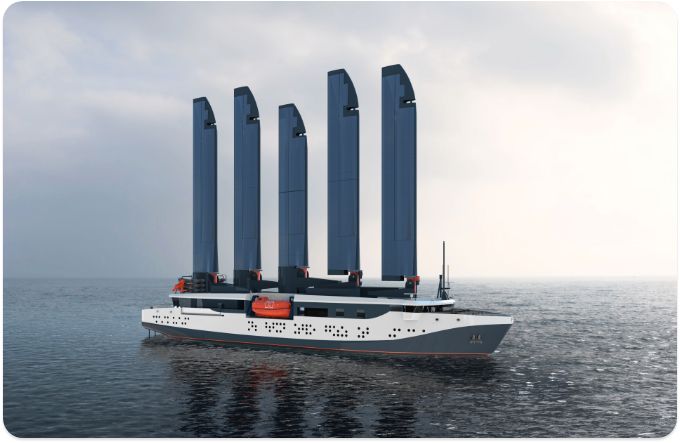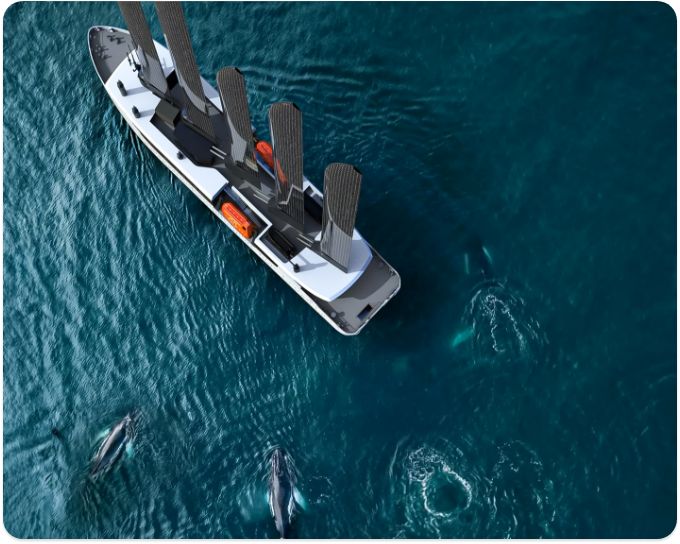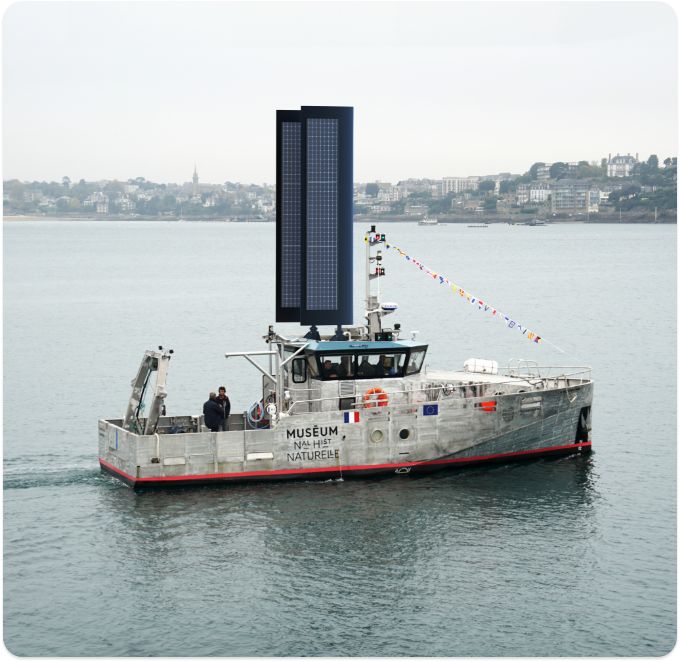
Since its founding, Selar has been committed to developing an eco-friendly approach to maritime cruises and accelerating the decarbonization of the industry, which still lacks disruptive alternatives. Their approach is comprehensive, combining innovative technologies with a new travel concept. The goal is clear: to deploy a fleet of 10 ships across the five oceans within the next 10 years.
The first vessel, Captain Arctic, is 70 meters long and accommodates 36 passengers and 24 crew members. This groundbreaking ship offers complete freedom: no fixed itineraries, no standardized experiences, and a strong commitment to biodiversity.
Five 35-meter-high Cormoran wings designed to withstand the harshest weather. Made from aluminum and covered with nearly 2,000 m² of solar panels, they generate clean, sustainable energy.
Electricity produced by the solar panels is stored in onboard battery banks.

The ship is optimized to minimize energy use, featuring enhanced thermal insulation, high-efficiency equipment, and reduced pressure losses throughout systems.

In polar regions, heating is provided by a pellet boiler using recycled wood waste, a greener alternative to traditional fuel boilers.

Innovative equipment enables this goal, including an organic waste treatment center and a septic system that recycles wastewater into technical-grade potable water.
The design, construction, and maintenance of this large vessel (and the following ships) involve various specialized French companies, mostly based in Brittany, including Cormoran. This fosters innovation in shipbuilding, maritime engineering, and clean technologies.
Captain Arctic will carry the first set of Cormoran sails and will be tested in diverse environments, from the Mediterranean to polar seas. This wide range of conditions will provide valuable feedback on the technologies’ reliability and performance.
The ship will fly the French flag and will have at least 50% French crew, supporting the growth of the local maritime industry and job creation.


This project aims to test the combination of rigid wings and solar panels on a 15-meter coastal research vessel, La Korrigane. Beyond assessing environmental performance and equipment durability, it also seeks to analyze and describe how the use of wind and solar energy changes coastal oceanographic research practices.
The National Museum of Natural History (Dinard branch) plays a key role in this project as both owner and operator of the research vessel. The vessel will test small-sized wings. As a research organization, the Museum’s mission is to study the impact of wind propulsion on scientific activities and, more broadly, on working conditions at sea along the coast.